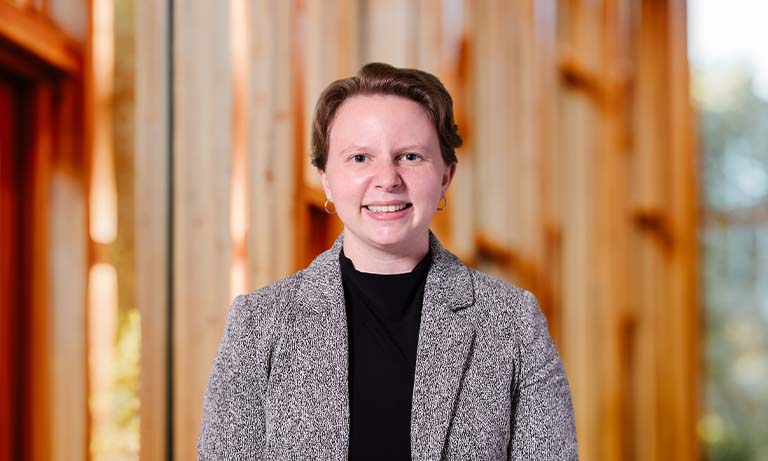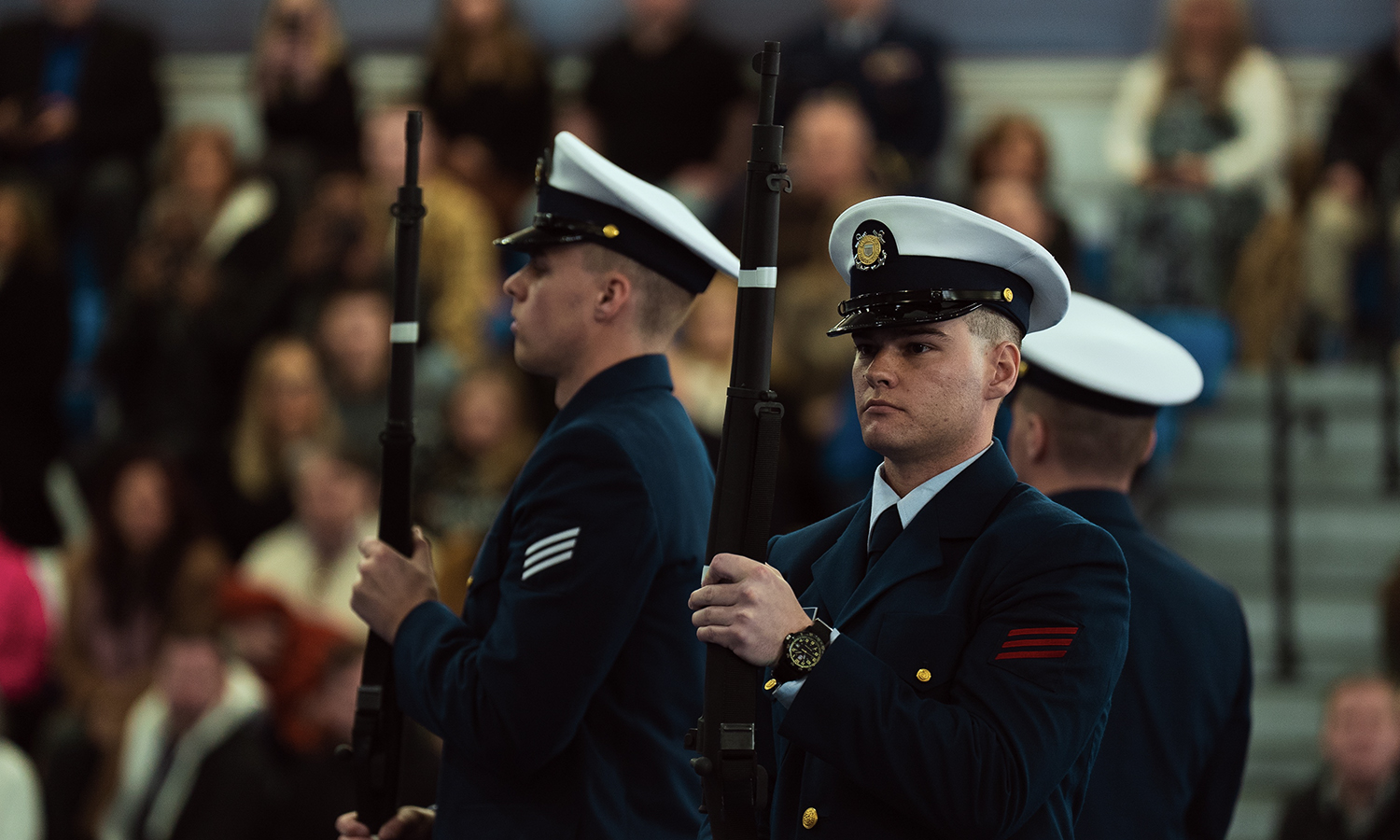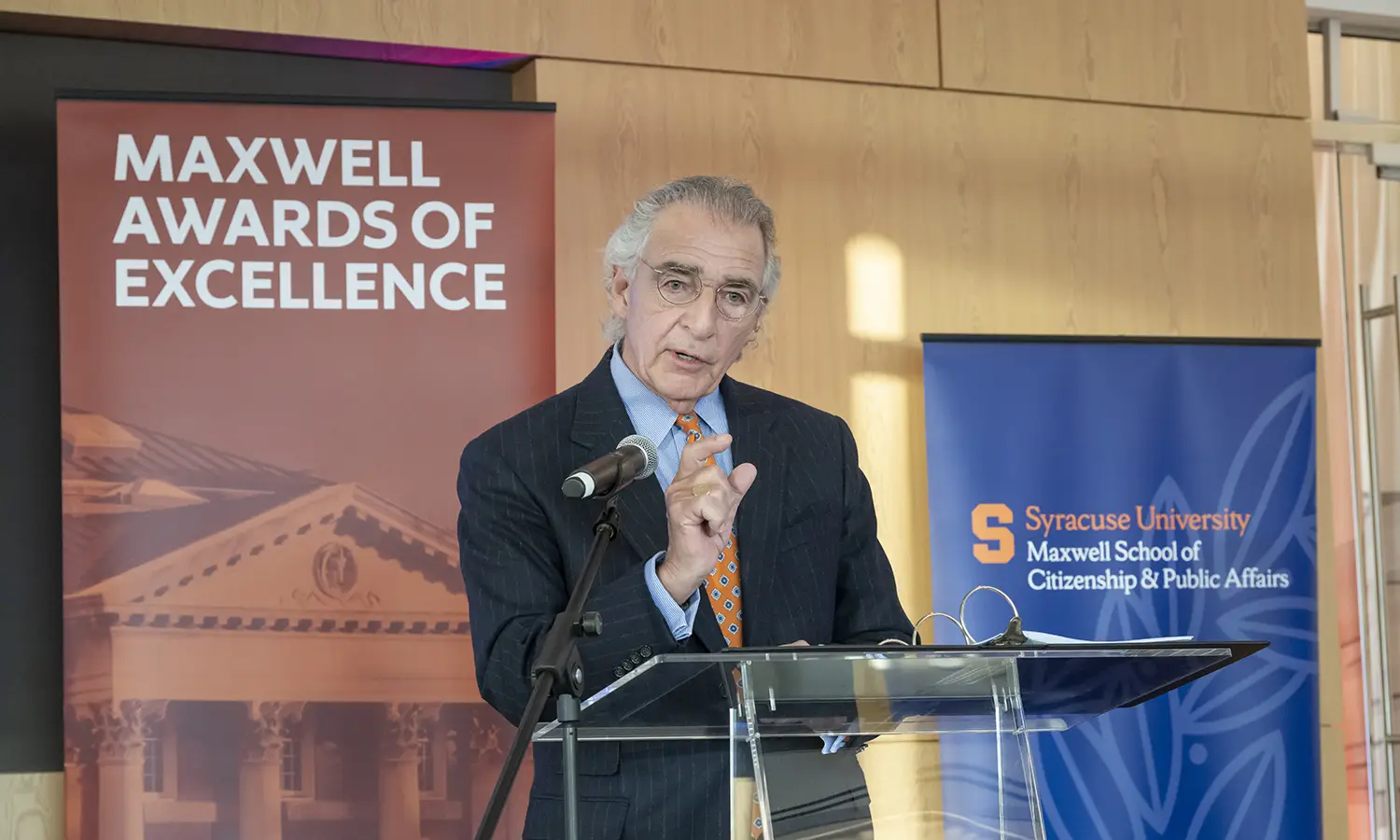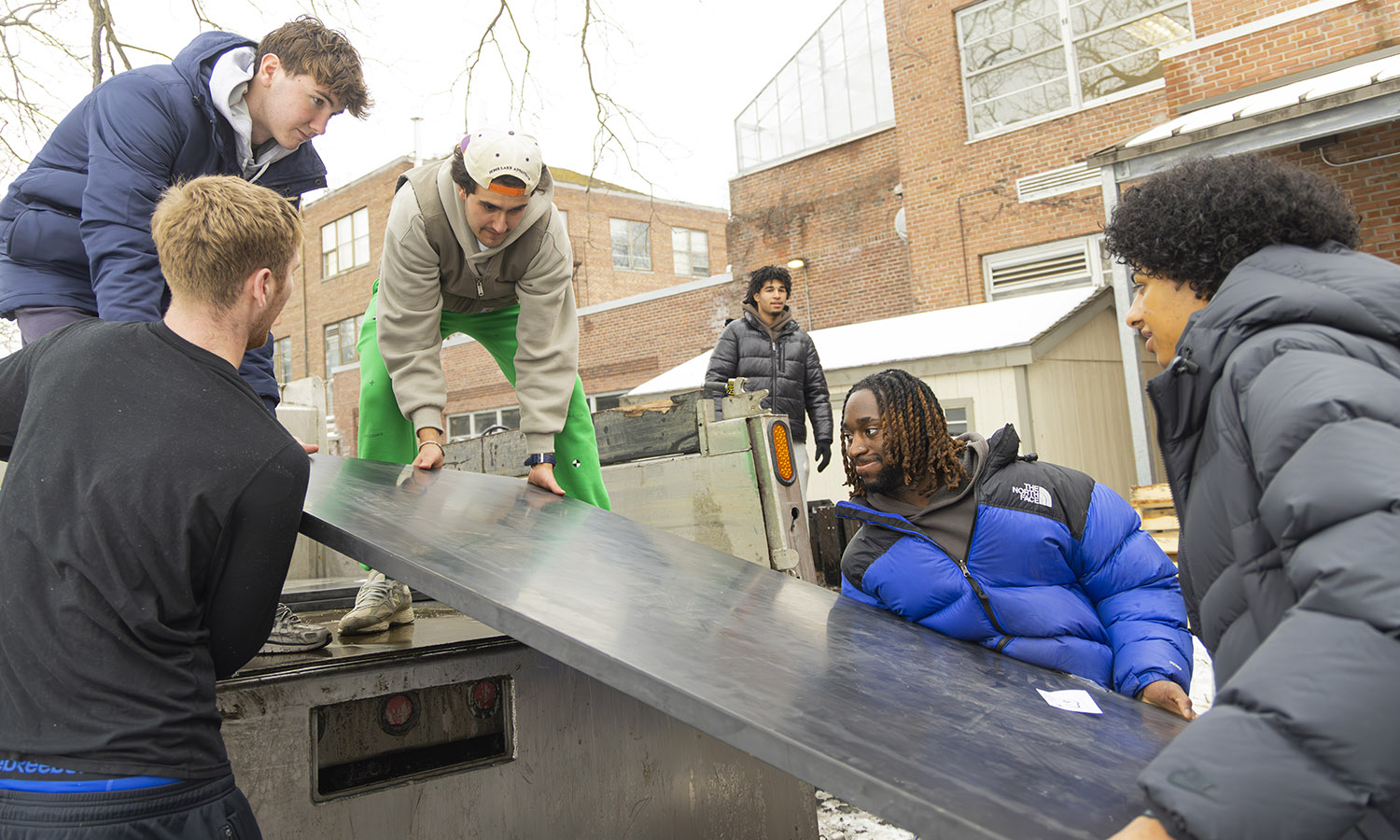
HWS News
8 May 2025 • Alums • Research Quint '21 Named a 2025 Knight-Henessy Scholar
Meg Quint ’21, current medical student at Stanford School of Medicine, earns prestigious Knight-Hennessy Scholarship to pursue a master’s at Stanford, advancing groundbreaking work in LGBTQIA+ and gender affirming care, intersex health justice, homeless health access, harm reduction, sexually transmitted infection prevention and plastics and reconstructive related surgical education and research.
Among the most prestigious scholarships, Knight-Hennessy scholars such as Meg Quint ’21 are chosen based on how they demonstrate independence of thought, purposeful leadership and a civic mindset.
The highly competitive award will allow Meg two fully funded years to complete their master’s program in epidemiology at Stanford School of Medicine before returning to complete their medical degree.
Meg’s aim is to pursue plastic and reconstructive surgery (PRS). Already, Meg is active in developing PRS-related medical education opportunities. They have developed a course for Stanford medical and physician assistant students to learn about the many subspecialties of PRS, including craniofacial, burn, hand, gender-affirming, and microsurgery. Further, they supported teaching an undergraduate course titled “Surgical Anatomy of the Hand: From Rodin to Reconstruction” taught by the Department Chair, Dr. James Chang, which teaches undergraduate students about hand anatomy and reconstructive surgical techniques through Rodin’s prolific collection of hand sculptures.
Their research and community outreach work spans gender-affirming surgical care, intersex health justice, surgical access outcomes, burn injury, early screening for fall prevention, harm reduction in homeless encampments and sexual health. This work has been published widely, and they recently co-wrote the first book chapter to ever describe individually customizable genital surgeries for transfeminine individuals.
With more than 7,000 applicants and only 84 winners from 25 countries, the fellowship is extremely competitive.
“Like the Rhodes Scholarship, on which it is modeled, the Knight Hennessy Scholarship is extremely competitive and selects applicants for their high potential to achieve substantial positive change in the world,” says Scott MacPhail, associate director of Health Professions and Fellowships Advising at Hobart and William Smith.
Originally from North Andover, Mass., Meg graduated Phi Beta Kappa from HWS, with the support of the Blackwell Scholarship. They graduated with a bachelor’s degree in biochemistry and a minor in philosophy.
“Our scholars are ready to think boldly, act wisely and humbly, and lead with purpose, helping build a better future for all of us,” says John L. Hennessy, Stanford University president emeritus and the Shriram Family Director of Knight-Hennessy Scholars.
The Knight-Hennessy Scholars is named after Phil Knight, MBA '62, philanthropist and co-founder of Nike Inc., and John Hennessy, chairman of Alphabet Inc. and president emeritus of Stanford.
Meg’s work has attracted more than $250,000 in funding from organizations including National Institute of Health, Stanford Center for Innovation in Global Health, Schweitzer Fellowship, Stanford MedScholars, Stanford Community Outreach Office and the U.S. Department of State. Unfortunately, Meg’s NIH funding has recently been cut in the large wave of grant terminations for any NIH funded research related to LGBTQ+ health. They hope to use the next two years to continue to find private donors to support this vital research and community based work in the wake of the changing research funding landscape. In addition, Meg has been awarded Stanford Medicine’s Health Equity Research and Opportunity Award and the Stanford Health Equity MD/MS Fellowship.
Meg says their interdisciplinary work, ability to work well in small groups and ability to actively engage their critical thinking skills at HWS were part of the reason their application was successful.
“I frequently find myself thinking back to HWS' mission statement to ‘prepare students to lead lives of consequence,’ when planning the next stages of my career, which has kept me grounded in ensuring my actions and plans will be of (hopefully positive) consequence to the world around me,” Meg says.
“People at HWS, like Scott MacPhail, Julianne and Justin Miller, Eric Pelkey, Kirin Makker, Becca Barile, Gregory Frost-Arnold, Sigrid Carle, and many others, have fostered my ability to think critically and reason through complex problems. Being able to deeply engage with subject areas outside my primary fields, gave me the ability to think through the ethics and greater implications, on an individual and societal scale, of both the everyday problems we encounter and solutions we attempt to create to those problems.
“This mindset has enabled me to communicate clearly with individual patients to create solutions that work for their individual lives and to work with others across fields to develop research and community work that will hopefully change how we practice medicine for the better. My experiential learning journey with HWS continues in the present,” Meg says.
This week, Meg’s vacation time overlapped with two days of the 10-day “The March: Bearing Witness to Hope” trip, where HWS and Nazareth College students learn from experts at World War II and Holocaust sites in Germany and Poland. “HWS and Nazareth College leadership teams were kind enough to allow my partner and me to join them for the two days we happened to overlap with the trip in Berlin,” Meg explains “Through various memorial sites and discussions, I was reminded of the medical system’s active role in the atrocities of the Holocaust that I will carry forward with me into my career. I’m grateful to HWS for these ongoing learning experiences, which offer perspectives that often fall to the wayside due to the time needed to master the science and art of medicine.”
Scott says, “Meg has always been able to take an idea, bring together a team of collaborators to help realize it, and then scale up their initial success to bring it to and ever-growing number of people. Meg did this during their four years at HWS and has continued to expand their reach and impact at Brigham and Women’s Hospital and now Stanford.”
At HWS, Meg conducted multiple research projects in cancer biology, genetics, genomics and a qualitative study on the experiences of transgender and gender expansive higher education professionals. Following graduation from HWS, Meg worked as a research assistant at Fenway Health and at Brigham and Women’s Hospital, where they worked on biobehavioral-based interventions to reduce HIV risk in LGBTQ+ youth and a myriad of epidemiological based studies on the benefits of gender-affirming care.
Outside of work, Meg loves to spend time with their two cats, Frank (named after the often forgotten Rosalind Franklin) and Addy (named after the surgical instrument Adson forceps). They love going to concerts, traveling and learning random skills with the goal of becoming a ‘jack of all trades,’ who hopefully masters at least one along the way.”



